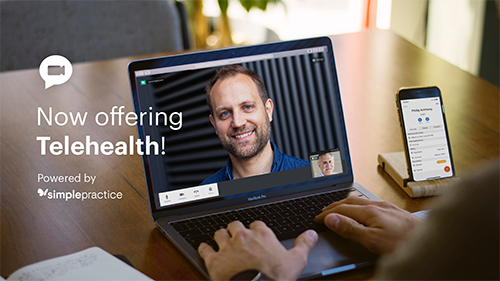Frequently Asked Questions
Psychotherapy is a general term that addresses an individual’s mental health problems and provides tools that can help you with the challenges that can affect everyone. During psychotherapy you gain a better understanding about your condition including your feelings, thoughts, and behaviors.
Not at all. People who ask for help know when they need it and have the courage to reach out. Everyone needs help now and then. In our work together, I’ll help you explore and identify your strengths and how to implement them to reduce the influence of the problems you are facing.
The difference is between someone who can do something, and someone who has the training and experience to do that same thing professionally. A mental health professional can help you approach your situation in a new way– teach you new skills, gain different perspectives, listen to you without judgment or expectations, and help you listen to yourself. Furthermore, counseling is completely confidential. You won’t have to worry about others “knowing my business.” Lastly, if your situation provokes a great deal of negative emotion, and you’ve been confiding in a friend or family member, there is the risk that once you are feeling better you could start avoiding that person so you aren’t reminded of this difficult time in your life.
Unfortunately, this is not possible to say in a general FAQs page. Everyone’s circumstances are unique to them. The length of time counseling can take to allow you to accomplish your goals depends on your desire for personal development, your commitment, and the factors that are driving you to seek counseling in the first place.
There are several reasons why individuals seek professional help. Many individuals seek counseling to gain the added support, unbiased perspective, and confidentiality of a therapist. Some individuals choose to come to therapy to address a psychological issue such as depression or anxiety.
For others therapy is a proven way to: improve interpersonal relationships, manage anger, increase self-esteem and/or overcome fears and obstacles. Other times, an individual comes in response to an external stressor or circumstance which they find difficult to cope, such as divorce or workplace conflict.
Whatever the reason, therapy is a helpful tool to help manage and get the most out of life.
Telehealth allows us to meet face-to-face over the internet. You have the ability to connect with us from your desktop, laptop, tablet, or mobile device (iOS or Android) - it's your choice! Telehealth requires no special software or technical skills. All you need is a computer (with an integrated camera). It’s as simple as that.
Telehealth minimizes the inconvenience of travel time and associated costs. I wanted to ease the stress that clients often experience just traveling to my office for treatment. Things like snow, rain, traffic, getting childcare, finding parking, etc. make traveling even short distances annoying. You can schedule and attend your appointments directly from your laptop or mobile device.
The benefits of Telehealth are supported by research, which has found that video therapy is as effective as in-person therapy. And thanks to a highly secure connection, our sessions will remain private and confidential.
SimplePractice, LLC is my practice management software for scheduling, case management, Telehealth, and therapy notes. SimplePractice, LLC, uses 100% HIPAA compliant software so your information will remain secure and confidential.





